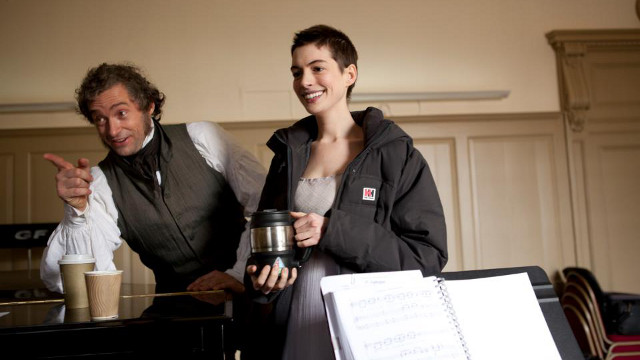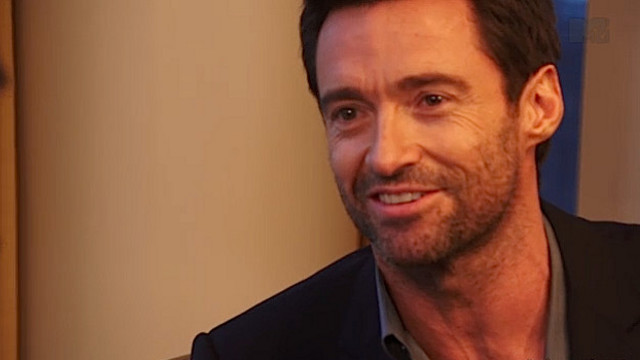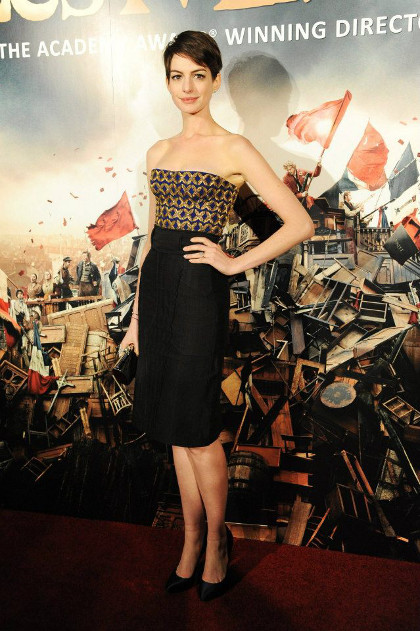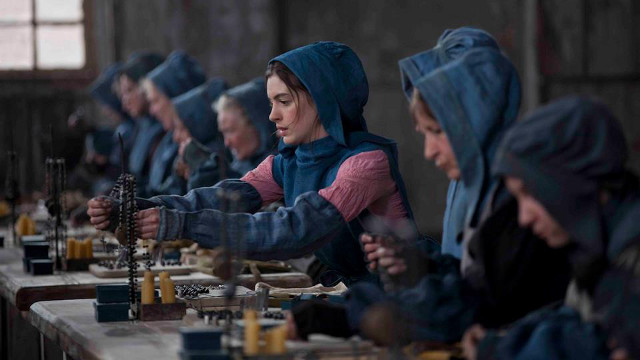SUMMARY
This is AI generated summarization, which may have errors. For context, always refer to the full article.

MANILA, Philippines – Nowadays, when you hear “Les Mis movie,” you think Anne Hathaway and Hugh Jackman.
They are the film’s biggest stars, their performances already generating Oscar buzz. With the film now showing in North American theaters, the two actors talk about their latest opus, reminiscing about the rehearsals that bonded them, the incredible vision of the film and the roles that claimed a part of their souls.
The iconic Jean Valjean

In an article on iamrogue.com, Jackman speaks reverently of Jean Valjean, the protagonist in Victor Hugo’s novel who is imprisoned for 20 years for stealing a loaf of bread for his sister’s starving family.
“He’s obviously one of the great literary characters and I see him as a real hero, quiet and humble,” he says.
Can a peasant-turned-mayor in 19th century France mean anything in the 21st century? Jackman thinks it can, saying that Jean Valjean’s story reminded him of the kindness shown by a New York City policeman who bought shoes for a homeless man.
Jackman continues, “To me, Jean Valjean comes from a place of the greatest hardship that I could ever imagine. I don’t think any of us could. He manages to transform himself from the inside… Victor Hugo uses the term ‘transfiguration.’ It’s more than a transformation because he becomes more godlike, it’s a spiritual change. It’s something that happens from within.”
Radical transformations

But for Jackman and Hathaway, the transformation was also from without. The two had to radically change their appearances to bring out the desperation and poverty of their characters.
To play Prisoner No. 24601, Jackman lost 20 pounds then regained it with an additional 10 pounds to transform into Monsieur Mayor, the respected businessman Valjean becomes after running away from prison.
Hathaway, skinny even without any single-parent prostitutes to portray, lost 25 pounds and cut her long brown hair into a sparse bob.
The generous amount of time provided by a film production allowed for changes in the appearance of characters not possible in live theater performances. This, according to Jackman, was something director Tom Hooper hoped to maximize:
“Tom said we actually have an opportunity here for all the characters to show time, scale and all these things so he said ‘I want to make you unrecognizable and if people in your life aren’t saying you’re sick then something is wrong and we haven’t gone far enough’.”
Though Jackman is no stranger to taking on iconic roles (such as Wolverine in the X-Men series and Van Helsing in the movie of the same name), he says the role of Valjean tops all:
“It’s, to me, one of the most beautiful journeys ever written and I didn’t take the responsibility of playing the role lightly. I think it is one of the greatest opportunities I’ve ever had and if I’m a tenth of the man Jean Valjean is, I’ll be a very happy man.”
Fantine and modern-day slavery

For Anne Hathaway, the challenge was authenticity.
“In my case, there’s no way that I could relate to what my character was going through. I have a very successful life and don’t have any children that I could give up or keep so what I did was try to get inside the reality of her story as it exists in our world. To do that, I read a lot of articles and watched a lot of documentaries and news clips about sexual slavery,” she admits.
She started her research by Googling articles on modern human trafficking and sexual slavery. One was a video of a police raid in a brothel that showed the camera crew squeezing in a tiny crawl space in the ceiling.
“Oh my God, 14 girls came out of it and they were all so tiny and crunched up and when they came out, they weren’t shocked that there was a camera there,” she recalls.
“They weren’t worried about getting arrested. They were gone. They were numb. They were unrecognizable as human beings and my heart broke for them.”
It was a prostitute in another documentary who made the actress understand what Fantine meant by “shame.”
Anna describes, “[She] didn’t want her identity revealed and she sat there and kept repeating ‘I come from a good family. We lost everything and I have children so now I do this.’ And she doesn’t want to do this but it’s the only way the children are going to eat. Then she let out this sob that I’ve never heard before. She raised her hand to her forehead and it was the most despairing gesture I’ve ever seen. That was the moment I realized that I wasn’t playing a character. This woman deserves to have her voice heard. I needed to connect to that honesty and recreate that feeling.”
To the actress, the greatest realization was discovering the relevance of Fantine to modern experiences.
She enthuses, “For me, for this particular story, I came to the realization that I was thinking of Fantine as someone who lived in the past but she doesn’t. She’s living in New York City right now. She’s probably less than a block away. This injustice exists in our world so every day that I was her, I thought, ‘This isn’t an invention. This isn’t me acting. This is me honoring that this pain lives in this world.’ And, I hope that, in all of our lifetimes, like today, we see it end.”
With this much heart and reflection poured into their roles, Jackman and Hathaway are very likely to squeeze a tear out of even the most callous of viewers. After all, what is Victor Hugo’s novel but a celebration of humanity and the power of human beings to move their fellow human beings?
– Rappler.com
Add a comment
How does this make you feel?
There are no comments yet. Add your comment to start the conversation.